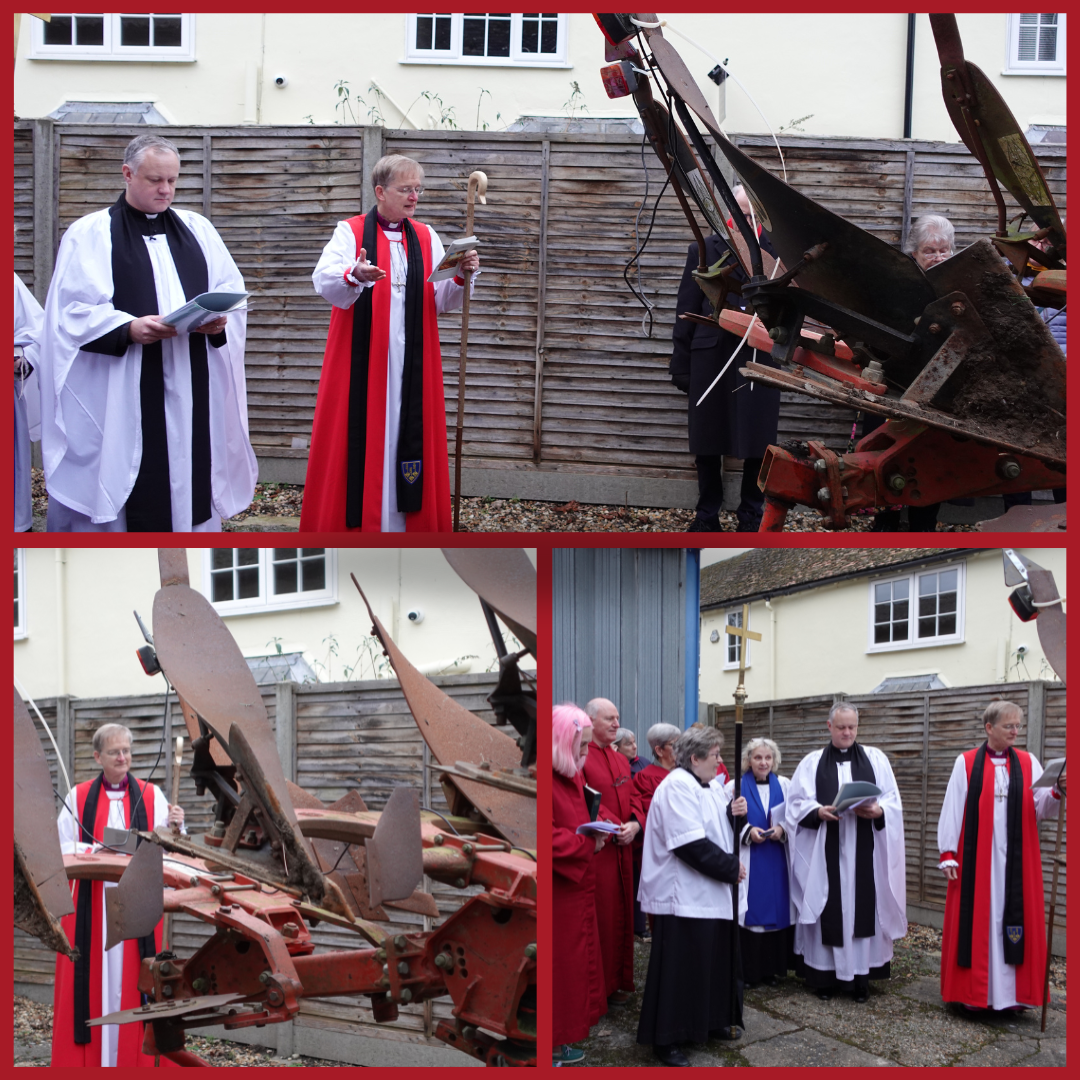The Rt Rev'd Dr Dagmar Winter joined parishoners from All Saints' Church, Melbourn, and Holy Trinity Church, Meldreth, for a traditional rural service for Plough Sunday
Members of the choir, the church organist and even a bassoonist led the congregation in Hymns of an agricultural persuasion that were selected to augment proceedings in the preceding service; 'We Plough the Fields and Scatter' seems equally as apt for a Plough Sunday service as at Harvest service. At the end of the service, the procession led across the road, where Bishop Dagmar blessed the plough, alongside the Vicar, the Rev'd Andrew Birks, and Pat Smith, LLM. ‘God speed the plough’ was the blessing given, with the congregation repeating it back in response. Bishop Dagmar also spoke in her sermon of the many challenges faced by the farming communities at this time, and gave thanks for the charities that support them.
Traditionally celebrated on the first Sunday after Epiphany, Plough Sunday dates back to medieval times, when the communal village plough was brought to church for a blessing, and signified the first working day after the 12 days of Christmas. Ploughing of the fields began at this time and continued into March in preparation of the season’s planting. This ancient festival of Plough Sunday was once again revived by the Victorians, and although today the connection to farming for most people has changed, Plough Sunday is still a time to celebrate, recognise, and honor the work of farmers and farming.
This is the first time a Plough Sunday service has been held at the church, and the Rev'd Birks, who has just recently taken up his post as Vicar of All Saints' Melbourn and Holy Trinity Meldreth, told us he was keen to acknowledge and celebrate the rural community of the parishes.
We always celebrate with a Harvest service, giving thanks for the bounty of the land. Plough Sunday marks the start of that sowing process, which gives us that bounty. Many of our parishoners come from a farming background. It's important to give thanks to all those who work the land, as well as those that are maybe not directly working the land, but are supporting those that do, for example by fixing machinery or transporting produce.

